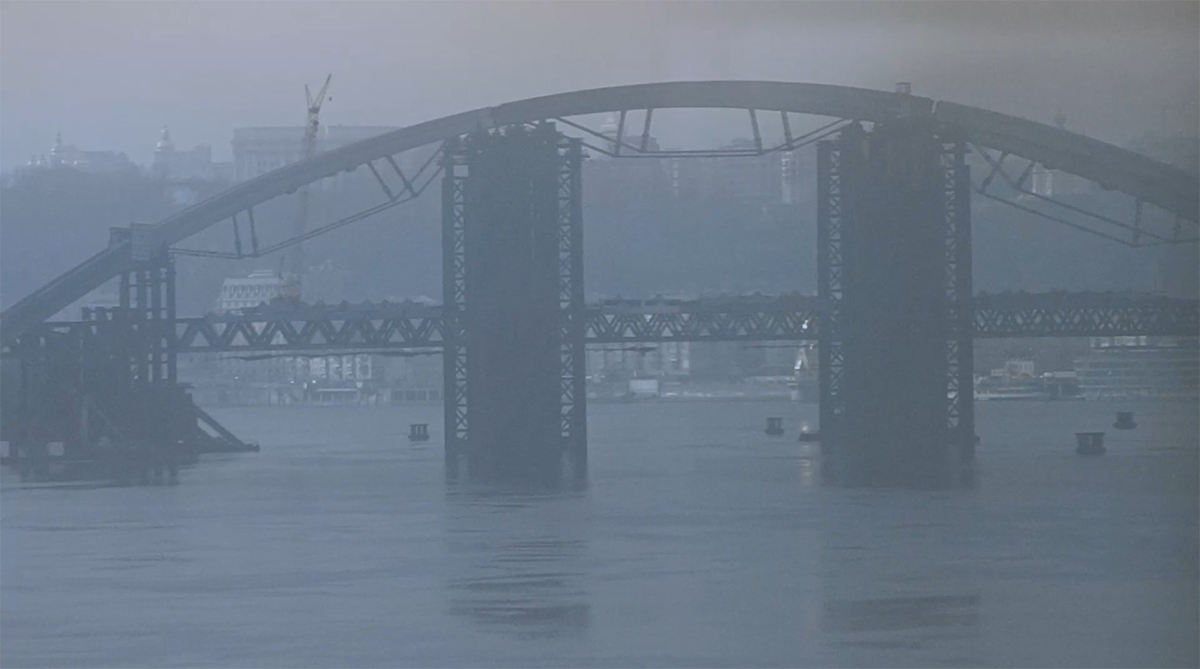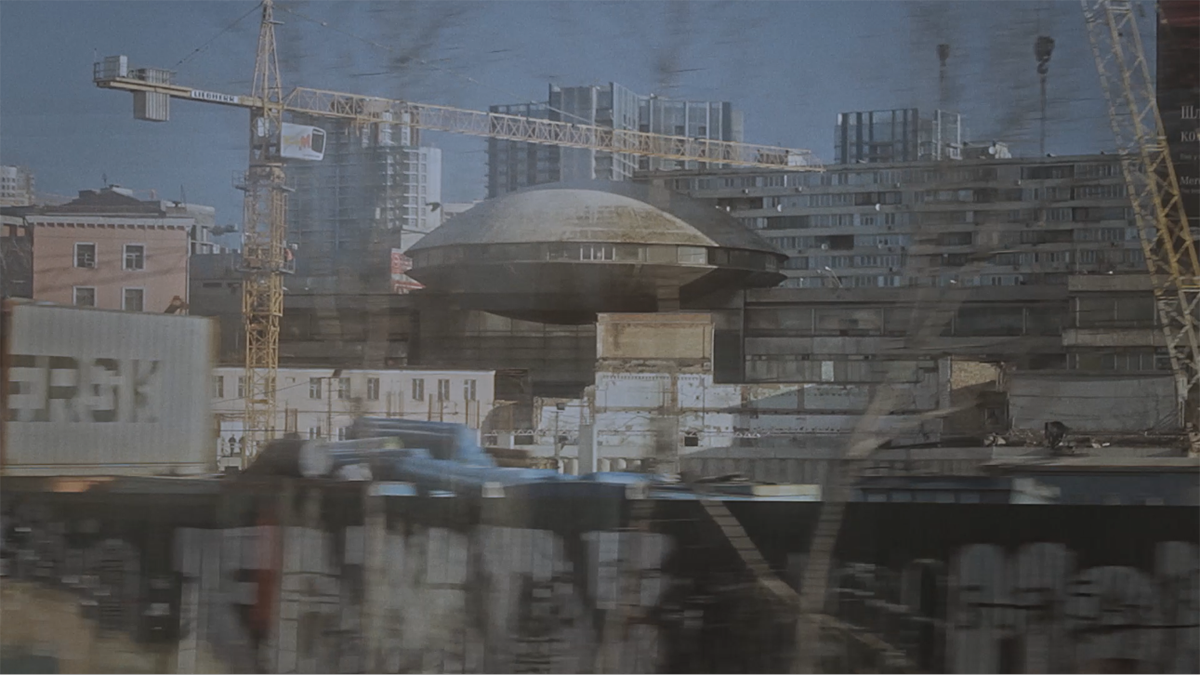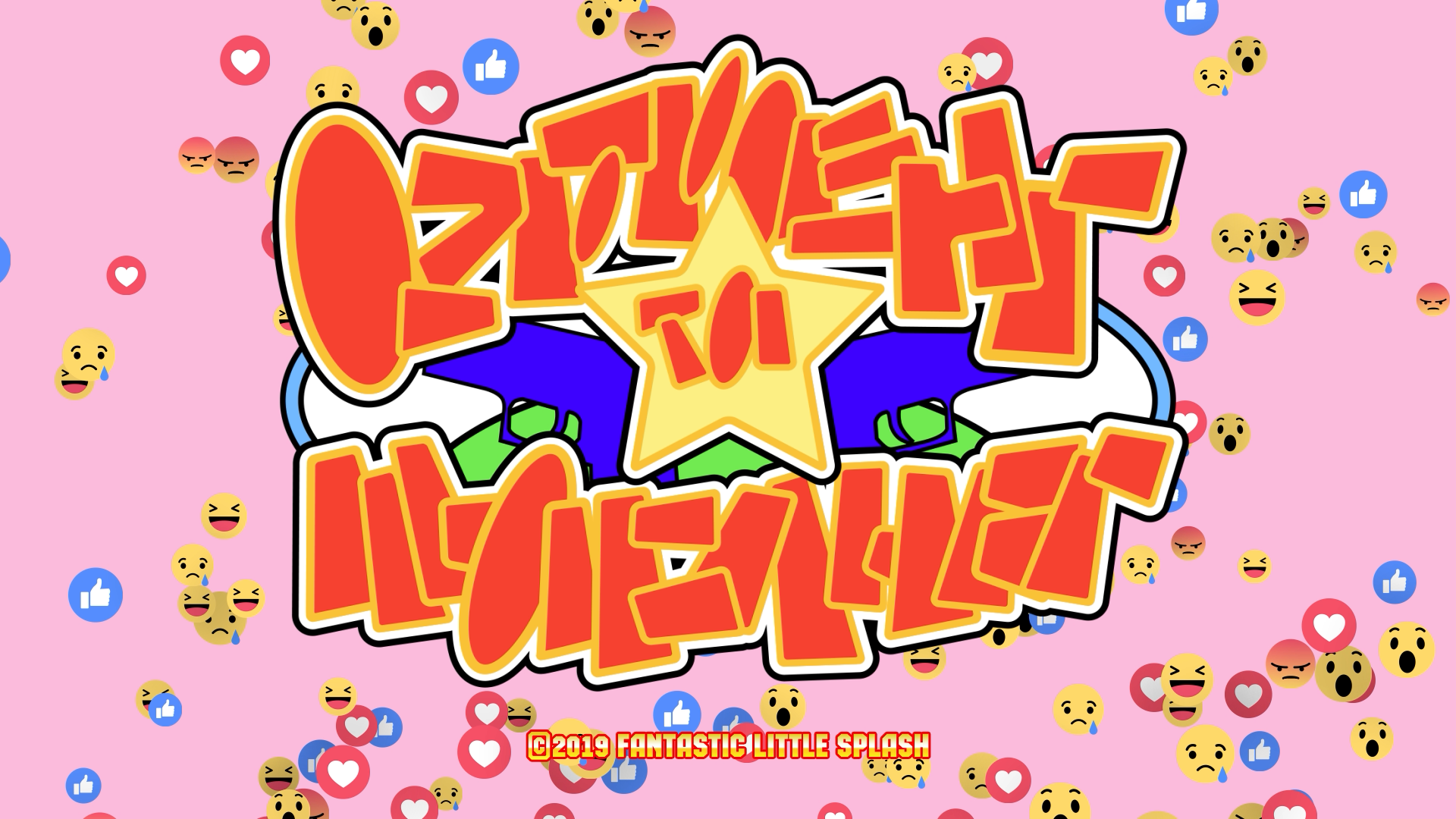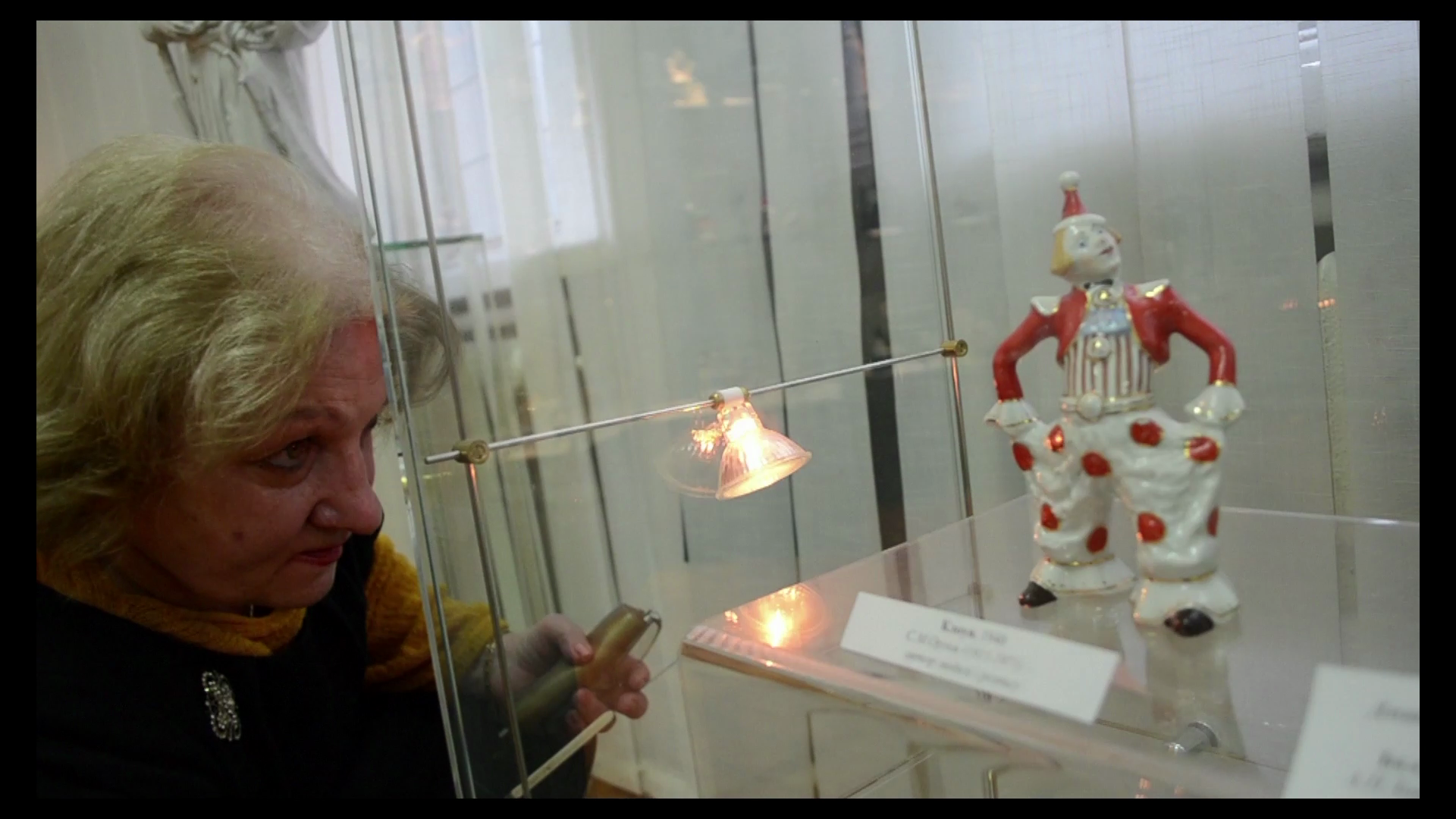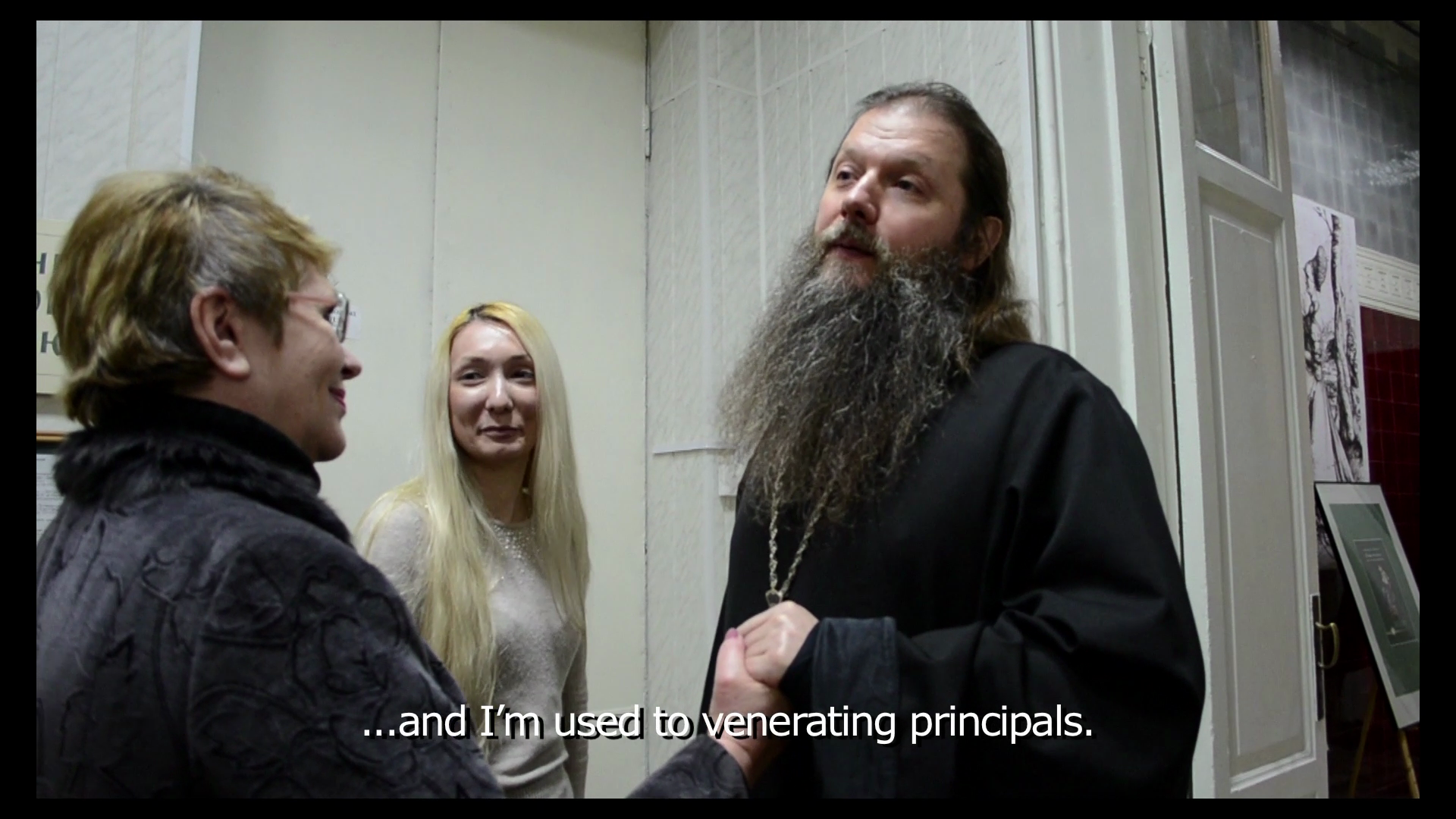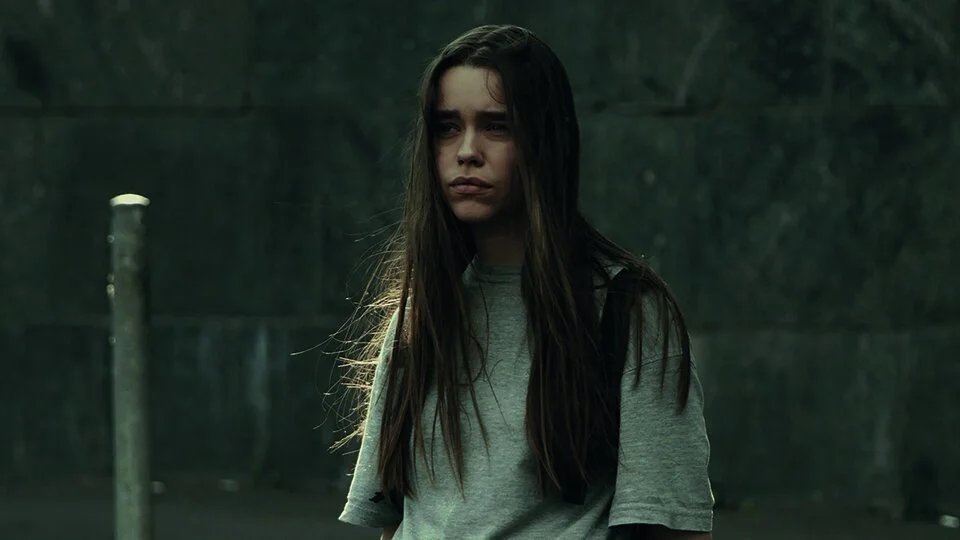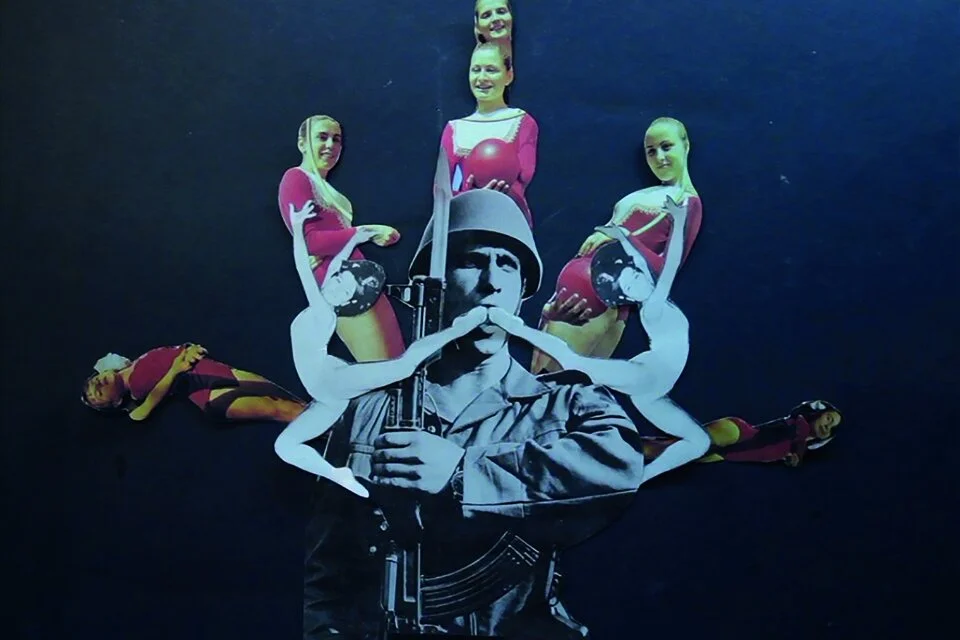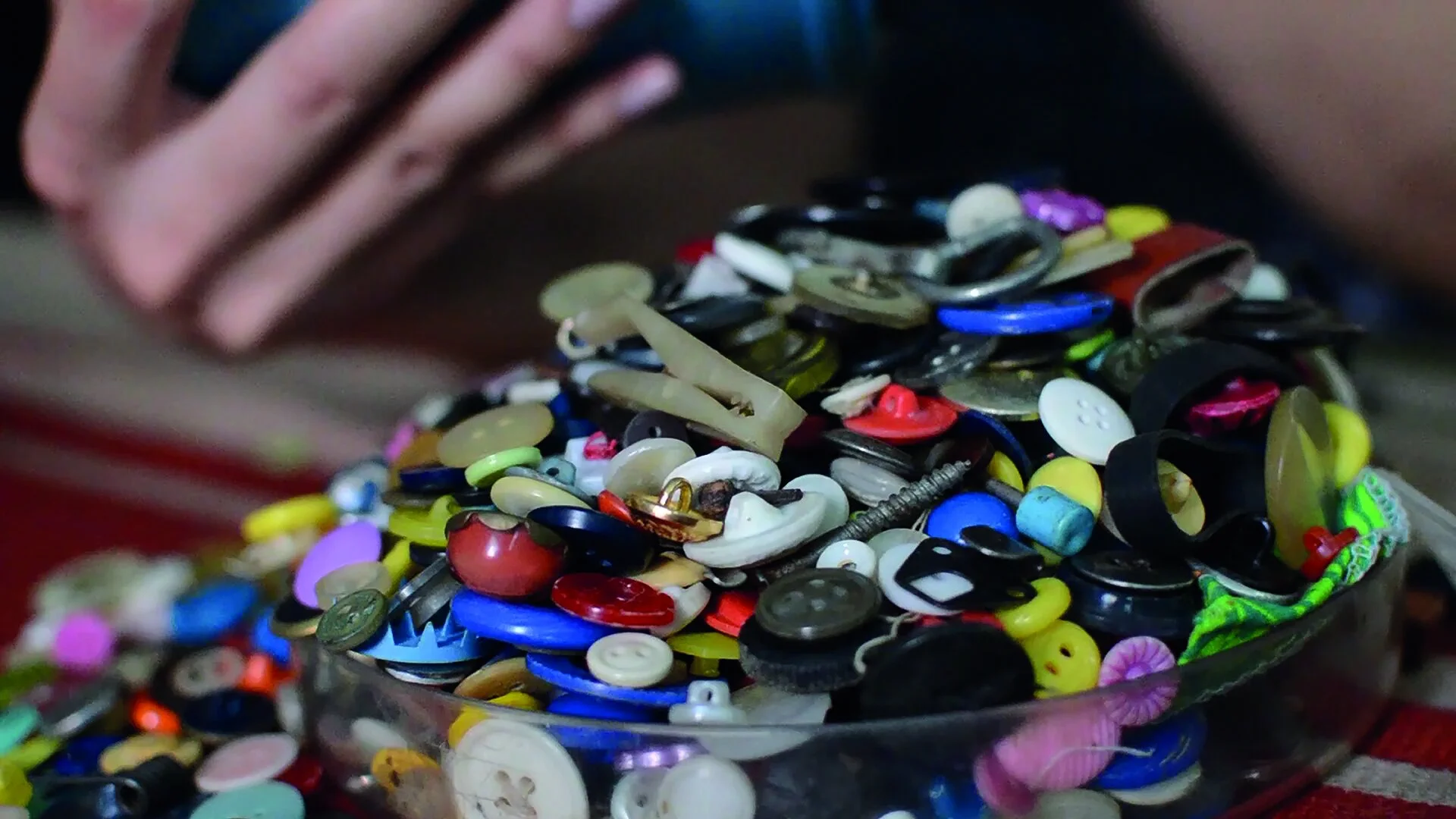HOW ARE YOU?
Piotr Armianovski, Fantastic Little Splash, Oksana Karpovych,
Dana Kavelina, Yarema Malashuk & Roman Himey,
Oleksiy Radynski, Mykola Ridnyi
A Program of Ukrainian Video Art Curated by Kateryna Filyuk
Oleksiy Radynski, Circulation (2020), 11’
Fantastic Little Splash, Armed and Happy (2019), 5’56”
Oleksiy Radynski, Incident in a Museum (2013), 8’
Mykola Ridnyi, No Regrets (2011/2016), 5’28”
Yarema Malashchuk & Roman Himey, Dedicated to the Youth of the World (2019), 9’
Dana Kavelina, Letter to a Turtledove (2020), 20’
Mykola Ridnyi, Shelter (2012), 6’13”
Piotr Armianovski, Mustard in the Gardens (2017), 37’
Oksana Karpovych, Don't Worry, The Doors Will Open (2019), 78’
How Are You? [Як ти?] probably is the most frequently asked question in Ukraine in the last weeks. With the Russian invasion of Ukraine and thus a start of a full-scale war this otherwise trivial question, whether it’s asked by relatives or acquaintances, suddenly gained myriads of whole new meanings. Are you alive? Are you safe? How are you feeling? Do you need help? Do you still have a safe place to stay? – here are just a very few of them. It became the ultimate expression of love and support, an expression of much needed hope that helps one to survive yet another day full of uncertainty and danger to life.
Ukrainian artists, whose feature films and video works were put together for the How Are You? screening program, providentially posed this question in both private and public domain, interrogating Ukrainian reality in the years prior to the invasion - i.e. during the war in Donbas that lasts since 2014. Their inquiries engage with a wide spectrum of subjects and vary in execution, though the faint silhouette of war and the violence it brings looms in each work.
Evidently the scariest answer to the posed question is silence. So, the artists chose to speak out loud, even if their answer so far is a grievous I’m not OK.
– Kateryna Filyuk
Oleksiy Radynski, Circulation (2020), HD Video, 11’
The short film Circulation is a a three-year-long observation of Kyiv’s moving landscape, condensed into 10 minutes of screen time.
fantastic little splash, Armed and Happy (2019), 5’56”
Armed and Happy, as one of the episodes of Mykola Ridnyi’s Armed and Dangerous video platform, focuses on the emotionality of social media and its role in the militarization of Ukrainian society. Armed and Happy explores common emotional accents in virtual practices – from sports broadcasts to weapon exercises – in an effort to see how previously unacceptable behaviors are normalized through their collective spread in social media, and how they become part of everyday life, contributing to further emotional contamination.
Oleksiy Radynski, Incident in a Museum (2013), HD Video, 8’
Incident in a Museum is a film that was shot as a by-product of research into the interactions of art, politics and religion in the post-Soviet context, undertaken by Visual Culture Research Center (Kyiv, Ukraine) in 2013. The film reconstructs a specific incident that occurred to the research group in the provincial art museum. The incident portrayed in the film represents the ongoing antagonism in the cultural field: 'the revenge of God', visible in the attacks of religious obscurantism on the realm of contemporary art, against the artistic attempts to replace religion with politics as an ultimate horizon of art as a social practice.
Mykola Ridnyi, No Regrets (2011/2016), HD video, 5’28”
No Regrets is based on footage of a suspension performance filmed in a nightclub in Kharkiv. Suspension is a subculture distinguished by the act of suspending a human body from hooks that have been put through body piercings. Many participants are representatives of teenage communities fascinated by heavy metal music, tattoos and piercing. Youth radicalism is sublimated here in bodily experience and overcoming pain thresholds, practiced as a protest against the routines of everyday life and social norms. Opposite to political activism, in this case it literally shows a desire to fly away from social relationships – a breakup which is possible only through physical pain. Five years after these filmed events, Ukraine was engaged in a war that provoked a fatal challenge for youth. Apart from obligatory military service, many young people joined volunteer battalions engaged in political radicalism.
Yarema Malashchuk & Roman Himey, Dedicated To The Youth Of The World 2 (2019), HD video, 9’
The focus of this film is the techno-rave Cxema, and the youth on which the camera is carefully focused the next morning after the event. The space of Dovzhenko's film studio is transformed into a dancefloor, a synchronized crowd, spotlights, arrhythmic synthetic sound by Stanislav Tolkachev — the camera moves away and approaches, creating a sense of romantic "exaltation" and at the same time a modern "alienation". This is the place and meeting that the youth of Kyiv are waiting for and preparing for — this particular escape from everyday life, and rejection of it — evokes strange feelings of modern ritual. But what does it mean? The film ends with "portraits", almost static shots, faces "after" utopia. Characters of the film are not ready to accept the new day and its old reality.
Dana Kavelina, Letter to a Turtledove (2020), HD Video, 20’
One of the crucial sources for this work is the anonymous five-hour documentary To Watch the War (2018) - a piece of found-footage filmmaking in its own right. Letter to a Turtledove is thus a second-degree artistic appropriation of amateur footage shot during the war in the Donbas region of Ukraine, recombined into a surreal anti-war film-poem. The war videos are interspersed with Kavelina’s own animated segments, staged mise-en-scènes, and archival footage of the Donbas from the 1930s (when the region became a hotspot for Stalinist industrialization of the Soviet Union, and of heated class warfare) onwards. There’s an actual poem at the film’s center: a monologue spoken off-screen, authored by Kavelina herself. This piece of writing encapsulates the multitude of traumas, grievances, horrors, dreams, and hallucinations that have descended upon the Donbass region since its invasion by Russia in 2014. Still, numerous elements of this multitude originate from long before the war had actually broken out.
Mykola Ridnyi, Shelter (2012), HD video, 6’13”
The main object in this film is an underground shelter repurposed for a kind of school that delivers pre-service training. The main character, an elderly teacher, also an archetype of Soviet ideology, does not seem to care about the contemporary political situation, instead opting to stay true to his own principles that have been inculcated into him through military service. His students couldn’t care less about the patriotism promoted in the schoolbooks from their teenage years; instead, they reserve their passions for the shooting ranges, inspired by computer games and Hollywood action movies. During the Cold war the political propaganda of the USSR and US produced a social phobia connected to the threat of nuclear war and the cult of defense. In modern Ukraine, many fallout shelters from the past have since been sealed. A few have been converted to serve new functions, adapted to different needs through individual creativity, spurred on by an overall lack of facilities.
Piotr Armianovski, Mustard in the Gardens (2017), HD Video, 37’
Olena is going home to the village on the frontline in the ‘grey zone’ of the Donetsk region where she spent her childhood. In the garden, her brother has planted mustard to prevent weeds from getting into their neighbours’ garden. The girl lies down in the prickly grass and recalls how big and tasty the apricots, cherries, and pears used to be...
Oksana Karpovych, Don’t Worry, the Doors Will Open (2019), HD Video, 78’
Shot over the summer of 2018 on elektrychkas, typical Soviet commuter trains that travel between the Ukrainian capital Kyiv and small provincial towns, Don’t Worry, the Doors Will Open invites us to share a ride with working class, mostly marginalized, passengers and vendors. Following a number of people from one grimy wagon to another, from station to station, from day to night, we are immersed in the daily struggles of their lives. Filmed during war-time, the film is a look at the human condition and an intimate point of view on the history of independent Ukraine as it is experienced by the common people. We do not see images of war in the film but feel its presence in the air penetrating our character’s minds and hearts. Don’t Worry, the Doors Will Open is an atmospheric and intensely human portrait of Ukrainian society on the move.
BIOS
Piotr Armianovski
Piotr Armianovski (Donetsk, 1985) is a performer and director. Since the war conflict started in his home city, Piotr focuses on documentaries. His films received awards at Docudays UA, Open Night, Biennale of Young Art. In 2020 Armianovski received the Gaude Polonia scholarship from the Ministry of Arts and National Heritage of Poland. Also Piotr shares his knowledge with younger artists at various workshops. Currently he is based in Kyiv.
fantastic little splash
fantastic little splash is a collective comprising of journalist/artist Lera Malchenko and artist/director Oleksandr Hants, which combines art practice and media studies. fantastic little splash is interested in utopias and dystopias, the collective imagination and its incarnations, projections, delusions and uncertainties. Established in 2016, their projects have been exhibited at The Wrong biennale, Plokta TV, post.MoMA, POCHEN Biennale, Construction festival VI x CYNETART, KISFF, Docudays, among others. The fantastic little splash collective is based in Ukraine.
Kateryna Filyuk
Kateryna Filyuk is the curator of the How Are You? video program. Born in Ukraine and currently based in Palermo, Filyuk is a curator and art critic and currently serves as the chief curator at Izolyatsia—Platform for Cultural Initiatives in Kyiv. She is also a co-founder of 89books publishing house in Palermo. In 2020-21 she was a Curatorial Board member of the Others art fair (Turin). Prior to joining Izolyatsia, she was the co-curator of the Festival of Young Ukrainian Artists at Mystetskyi Arsenal, Kyiv (2017). She has participated in several internationally renowned curatorial programs, including Young Curators Residency Program at the Fondazione Sandretto Re Rebaudengo, Turin (2017); De Appel Curatorial Program, Amsterdam (2015–2016); International Research Fellowship at the National Museum of Modern and Contemporary Art (MMCA), Seoul (2014); and Gwangju Biennale International Curator Course (2012). She was the catalogue managing editor and discussion platform coordinator for the First Kyiv International Biennale of Contemporary Art, ARSENALE 2012. She holds an MA in philosophy from Odessa I.I. Mechnikov National University, and since 2021 is a PhD student at the University of Palermo.
Oksana Karpovych
Oksana Karpovych is a film writer, director, and photographer born in Kyiv, living and working in between Kyiv and Montreal. Her debut feature documentary film Don’t Worry, the Doors Will Open won the New Visions Award at RIDM in 2019, received an honorable mention at Hot Docs and played at numerous film festivals. In her personal projects, Karpovych explores the everyday lives and oral histories of the common people and how state politics invades the personal sphere and influences the communities she intimately documents. Karpovych is a Cultural Studies graduate of the “Kyiv-Mohyla Academy” National University in Ukraine and a Film Production graduate of Concordia University in Montreal. She is currently living and working in Kyiv.
Dana Kavelina
Dana Kavelina (Melitopol, 1995) was based in Kyiv\Lviv, Ukraine, but has currently fled to Germany. She is a graduate of the Department of Graphics at the National Technical University of Ukraine. She works primarily with animation and video, but also installation, painting and graphics. Her works often thematicize military violence and war, seen from the perspective of gender, and are especially concerned with the position of the victim as a political subject, as well as the distance between historical and individual trauma, memory and misrepresentation. Her works have been exhibited at the Kristianstad Kunsthalle (Sweden), Kmytiv Museum (Kmytiv), Closer Art Center (Kyiv), Voloshyn Gallery (Kyiv). In 2018, the animated film "Mark Tulip, who spoke with flowers'' received the Special Jury Prize at the OIFF and the Grand Prix of the KROK festival. In 2020, the film "Letter to the Turtledove" was included in the “War and Cinema” program of the American magazine eflux.
Yarema Malashchuk & Roman Himey
Collaborating at the edge of visual art and cinema since 2013, Kyiv-based artists and filmmakers, Roman Khimei and Yarema Malashchuk graduated as cinematographers from the Institute of Screen Arts in Kyiv, Ukraine. They were awarded the main award of the Pinchuk Art Centre Prize (2020), VISIO Young Talent Acquisition Prize (2021), Best Short Documentary at Festival Internacional de Cine Silente México (2019), as well as the Grand Prix at the Young Ukrainian Artists Award (MUHi 2019). Their debut documentary feature “New Jerusalem” premiered at Docudays UA International Film Festival 2020. The film received the Special Mention Award at Kharkiv MeetDocs, and the duo also recently participated in the Future Generation Art Prize (2021), a prestigious international award for artists under 35 years of age.
Oleksiy Radynski
Oleksiy Radynski is a filmmaker and writer based in Kyiv. His films have been screened at International Film Festival Rotterdam, Kurzfilmtage Oberhausen, Docudays IFF, the Institute of Contemporary Arts (London), and S A V V Y Contemporary (Berlin), among others, and have received a number of festival awards. After graduating from Kyiv-Mohyla Academy, he studied at the Home Workspace Program (Ashkal Alwan, Beirut). In 2008, he cofounded Visual Culture Research Center, an initiative for art, knowledge, and politics in Kyiv. His texts have been published in Proxy Politics: Power and Subversion in a Networked Age (Archive Books, 2017), Art and Theory of Post-1989 Central and East Europe: A Critical Anthology (MoMA, 2018), Being Together Precedes Being (Archive Books, 2019), and e-flux journal.
Mykola Ridnyi
Mykola Ridnyi (Kharkiv, 1985) is an artist and filmmaker, curator and author of essays on art and politics. Since 2005, he has been a founding member of the SOSka group, an art collective based in Kharkiv. The same year he co founded the SOSka gallery-lab, an artistrun-space in an abandoned house in the center of Kharkiv. Under Ridnyi's lead, the gallerylab was instrumental in developing the artistic scene in the region before it was closed in 2012. He curated a number of international exhibitions in Ukraine, among them "After the Victory" (CCA Yermilov centre, Kharkiv, 2014), "New History" (Kharkiv museum of art, 2009) and others. Since 2017, Ridnyi is co-editor of Prostory – the online magazine about visual art, literature and society. In 2019 he curated Armed and Dangerous - multimedia platform bringing together video artists and experimental film directors in Ukraine.


